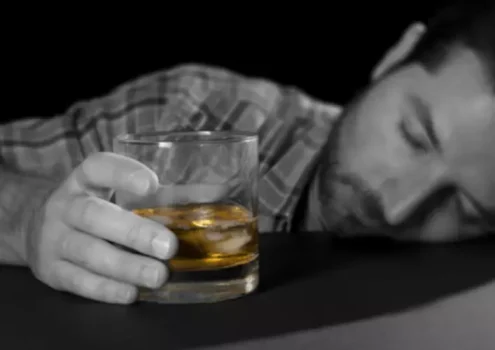
One drink on occasion is not likely to cause problems, but moderate to heavy drinking with anticoagulant medications is dangerous. It increases the risk of bleeding-type strokes as well as blood loss from what would otherwise be a small injury. Binge drinking, or consuming four or more drinks for men and three or more drinks for women several days a week, can lead to dangerous blood clots and increase the risk of health complications.
Bedrock Recovery

Generally, light-to-moderate drinking is considered safe for most people on most types of blood thinners. But because everyone is different, your doctor can advise based on your condition and other medications you may be taking. If you are at an increased risk of developing blood clots, your doctor may recommend that you take a blood thinner.

What are the risks of having thinner blood due to alcohol consumption?
- We understand the financial aspects of therapy and work to make services accessible, guiding families through insurance options such as Aetna, United Healthcare, Cigna, and Blue Cross Blue Shield.
- They also highlighted that long-term heavy drinking and binge drinking may increase someone’s risk of various cardiovascular conditions.
- This antioxidant may reduce harmful cholesterol levels and minimize the risk of blood clots.
However, that does not mean that drinking is healthy, nor should you use alcohol to manage your blood pressure. There are safer and more reliable ways to manage high blood pressure than regular drinking. Generally, the most common symptom is excessive bleeding or bruising. If you have been drinking heavily heroin addiction and notice that you are bruising or bleeding more easily, it may be a sign that you have thinned your blood. If you drink more than four drinks in one day, it is likely that your blood has been thinned. Heavy drinking can also lead to other health problems, such as liver damage and an increased risk of cancer.
Safe levels of beer consumption
Our team does their best for our readers to help them stay informed about vital healthcare decisions. Calls to our general hotline may be answered by private treatment providers. We may be paid a fee for marketing or advertising by organizations that can assist with treating people with substance use disorders. Addiction Resource does not offer medical diagnosis, treatment, or advice. Only trained and licensed medical professionals can provide such services.

Thank you! If it’s time for you or a loved on to make a change…
- When it comes to the health of your blood vessels, have a conversation with your doctor.
- Some individuals may experience more pronounced effects on blood thinning after consuming alcohol, while others may have a minimal response.
- If you have been drinking heavily and notice that you are bruising or bleeding more easily, it may be a sign that you have thinned your blood.
- Many treatment centers also offer specialized services, including programs for dual diagnosis and support for specific demographics.
- They will be able to advise you on the best course of treatment to reduce your risk of developing blood clots or other health problems.
The American Heart Association (AHA) does not recommend drinking alcohol because of its risk of heart damage, including increased risk of blood clots. While moderate drinking is less dangerous than excessive drinking, it is important to avoid drinking alcohol at all if you have concerns about your cardiovascular health or concerns about blood clots. As Americans increasingly drink too much in the form of binge drinking, heavy drinking, or AUD, the risks of health problems increase.

Treatments for Deep Vein Thrombosis (DVT)
It is critical to strike a balance that reduces risks while also promoting overall well-being. Of course, if you drink alcohol, drinking in moderation is always recommended. Over-imbibing can affect how quickly your blood clots and does drinking alcohol thin your blood can increase your chances of falling.